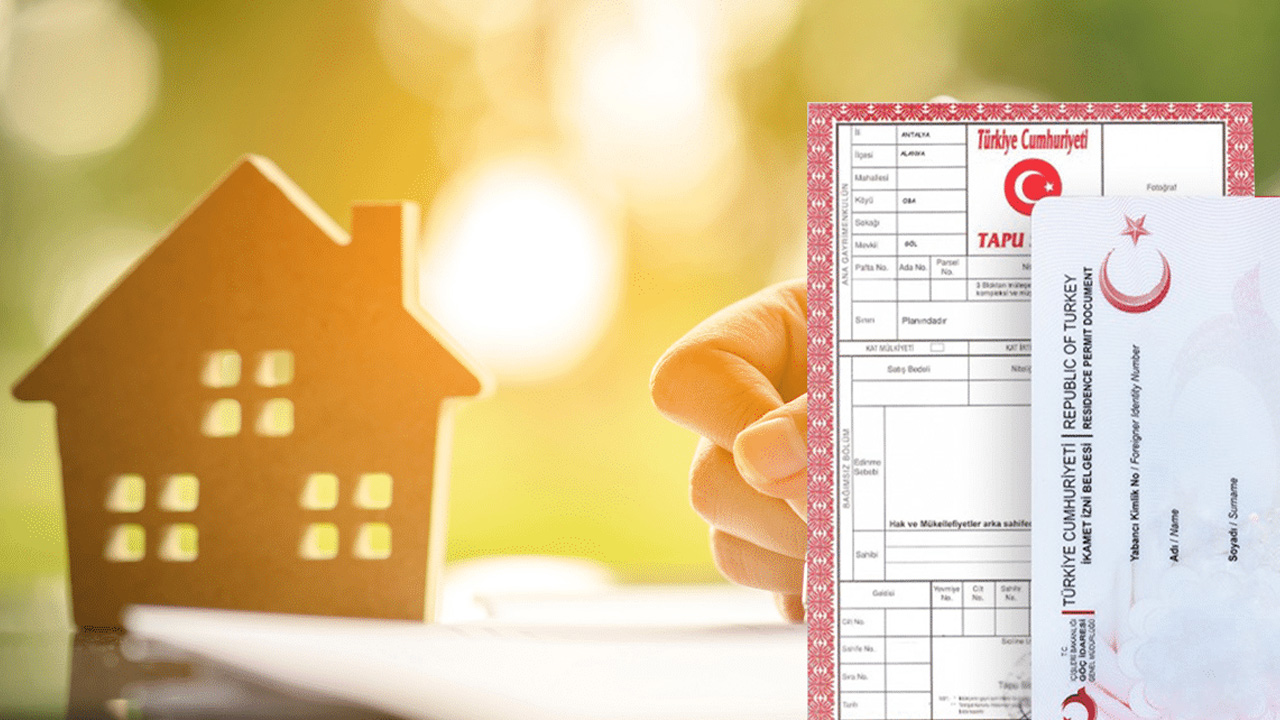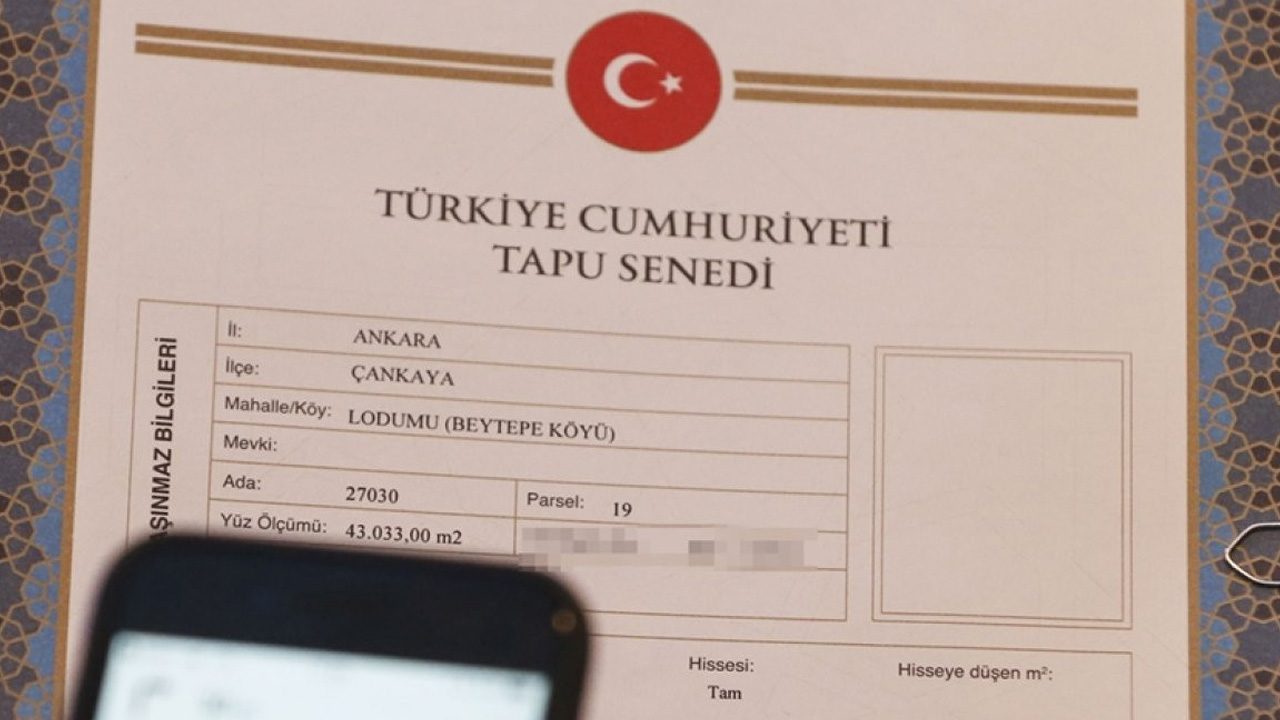The real estate title deed in Turkey is granted after transferring ownership from the old owner to the new owner.
This means that the person whose name is mentioned in the property deed is the rightful owner of the property, with the responsibility for taxes and fees falling on them.
We received several questions about the real estate title deed through the Golden Group for Real Estate Consultations website and our social media pages.
We’ve gathered the most important ones in this article.
1.What are the types of title deeds in Turkey?
- There are various types of title deeds in Turkey, including agricultural title deeds, building permits, real estate attachment deeds, floor attachment deeds, full ownership deeds.
- housing approvals, transitional ownership deeds, and commercial real estate records.
2-What is the difference between a construction permit and a full title deed?
- A construction permit is a temporary ownership document given to a property buyer in Turkey when the construction is still in progress.
- It provides details about the entire project, including the property number, location within the building, and the owner’s name.
- A full title deed, on the other hand, is issued once construction is completed and after a committee from the Directorate of Title Deed and Cadastre inspects the project.
- It replaces the construction permit and is specific to each individual property, containing details such as its dimensions, the number of rooms, the owner’s name, and more.
- It’s worth noting that the construction permit is temporary and must be replaced by the full title deed upon completion of construction, as per Turkish property laws.

3-What are the procedures for transferring property ownership in Turkey?
- Once a real estate purchase contract is signed in Turkey, and the full payment for the property is made through a bank transfer from the buyer’s account to the seller’s account, an appointment can be scheduled at the nearest Directorate of Title Deed in the area.
- The parties involved in the contract, or their authorized representatives through official power of attorney, should visit to initiate the property ownership transfer process using official documents.
4-What documents are required for transferring property ownership in Turkey?
The required documents include the real estate purchase contract, which should be signed by both the seller and the buyer and include personal and property details, duly notarized by a Turkish notary. Additionally, documents such as proof of payment in Turkish Lira and currency exchange receipts to the central bank may be necessary. Other documents include the Turkish national ID card for Turkish sellers or a residence permit and passport for foreign buyers, biometric photos of both parties, a property valuation report, earthquake and disaster insurance (DASK), and an appointment confirmation.
5-Can all foreigners obtain a title deed in Turkey?
- In 2012, the Turkish Parliament issued a law allowing citizens of 183 foreign countries to own real estate in Turkey, with some exceptions based on political or international sanctions.
- Citizens of countries such as Syria, Cuba, North Korea, Armenia, and Greek Cyprus are among those not permitted to own property in Turkey.
- Therefore, citizens of these countries cannot apply to the Directorate of Title Deed to transfer property ownership, even if a sales contract has been signed and notarized by a Turkish notary.
6-What are the fees for transferring property ownership in Turkey?
- The Turkish tax law sets the fee for transferring property ownership, which is 4% of the property’s value.
- This fee can be paid in full by the buyer or shared between the buyer and the seller, with each party paying 2%, or the seller can pay it in full.
7-What are the conditions for having a title deed for a property in Turkey?
- Turkish authorities impose several conditions for granting property owners their title deeds.
- These conditions include having building permits from the municipality where the property is located, complying with regulations.
- that prohibit construction in certain areas, and ensuring that the project meets Turkish construction laws, including earthquake-resistant features and compliance with Turkish and international standards.

8-Who is responsible for obtaining the real estate title deed?
The construction company is responsible for providing the necessary documents and meeting the requirements to obtain the real estate title deed (property deed) from the Directorate of Title Deed and Cadastre in Turkey.
9-What is the importance of obtaining a real estate title deed?
- The real estate title deed is crucial because it legally establishes the property owner’s right to buy, sell, rent, or otherwise use the property.
- It serves as proof of ownership recognized by the Turkish government, safeguarding the owner’s rights regarding the property and protecting them from legal issues related to permits or construction.
10-What are the advantages of being a property deed holder in Turkey?
- Property deed holders in Turkey enjoy several benefits, including the ability to use their property as they wish, for residence, investment, or sale, without restrictions.
- The property owner is the legal entity responsible for the property before the Turkish government, and no one else can make decisions about it without the owner’s authorization through an official power of attorney.
- Additionally, the title deed protects the owner from legal issues related to permits, construction, or potential demolition by the municipality, as it confirms the property’s legal status.
- Property owners with a deed equivalent to or exceeding $75,000 in value in major cities can also apply for a Turkish residence permit, and those with property valued at $400,000 or more can apply for Turkish citizenship, with a commitment not to sell for three years.
- Therefore, the real estate title deed is an essential document in Turkish property ownership, not to be taken lightly or delayed, as it is the only official document proving the owner’s status and rights concerning the property.
 العربية
العربية


